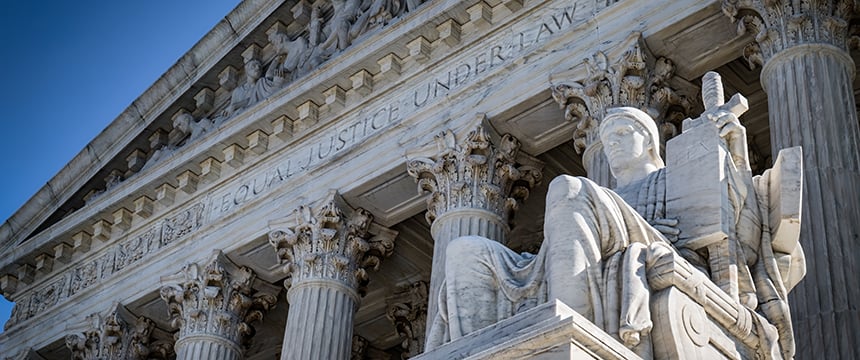Will the Supreme Court’s Decision Rejecting Race-Conscious College Admission Programs Impact Corporate DEI Initiatives?

On June 29, 2023, the U.S. Supreme Court decided that the use of race by Harvard University and the University of North Carolina in their student admissions programs violates the Equal Protection Clause of the 14th Amendment as well as Title VI of the Civil Rights Act of 1964. While the Court’s opinion is limited to affirmative action in education, it is certainly worth considering how its approach could affect diversity, equity, and inclusion (DEI) programs in the workplace.
A full analysis of the Court’s majority opinion (which, along with the concurrences and dissents, encompasses 237 pages) is well beyond the scope of this article, but a few principles are clear, and may have applicability to workplace DEI:
1) the Court was extremely skeptical of using race in any way as a decision-making factor
2) it ruled that the institutions’ reliance upon factors such as “training future leaders in the public and private sectors,” preparing graduates to “adapt to an increasingly pluralistic society,” “better educating [their] students through diversity,” and “producing new knowledge stemming from diverse outlooks” was not sufficiently concrete or measurable to meet the applicable strict scrutiny test
3) the Court criticized the racial and ethnic categories used by each school in administering their affirmative action programs
Going forward, the Court’s opinion and the principles outlined above may be used by groups that have attacked DEI programs as discriminatory, such as the National Center for Public Policy Research’s Free Enterprise Project which sued Starbucks over its DEI hiring goals, or the America First Legal Group which has filed EEOC claims directed at DEI plans. Reverse discrimination claims can be quite costly — for example, a federal jury in New Jersey recently rendered a $25.6 million verdict in a reverse discrimination lawsuit.
In addition to private lawsuits, some states may also employ the Court’s rationale in enacting laws targeting certain aspects of DEI.
However, after the Supreme Court issued its opinion, the EEOC’s Chair, Charlotte A. Burrows, quickly proclaimed that nothing had changed from the agency’s point of view, and that the decision “does not address employer efforts to foster diverse and inclusive work forces or to engage the talents of all qualified workers, regardless of their background.”
Moreover, while the college admission programs specifically used race as a factor in decision-making, corporate DEI efforts are typically less directive and more holistic, focusing on bias training, diverse candidate pools, and mentoring. Additionally, while there has been fanfare about reverse discrimination lawsuits, the actual number of such EEOC charges is very small and has decreased in the last ten years, while the legal and reputational risks to companies primarily come from the other direction.
As the number of amicus curia briefs from corporate organizations supporting the colleges’ affirmative action programs illustrate, DEI programs are firmly entrenched in corporate culture, and this decision is unlikely to materially alter these efforts. However, especially in light of this opinion, companies would be wise to re-examine their DEI policies to ensure that their efforts to foster diversity, equity, and inclusion do not cross the line by, for example, employing goals that operate as quotas.
